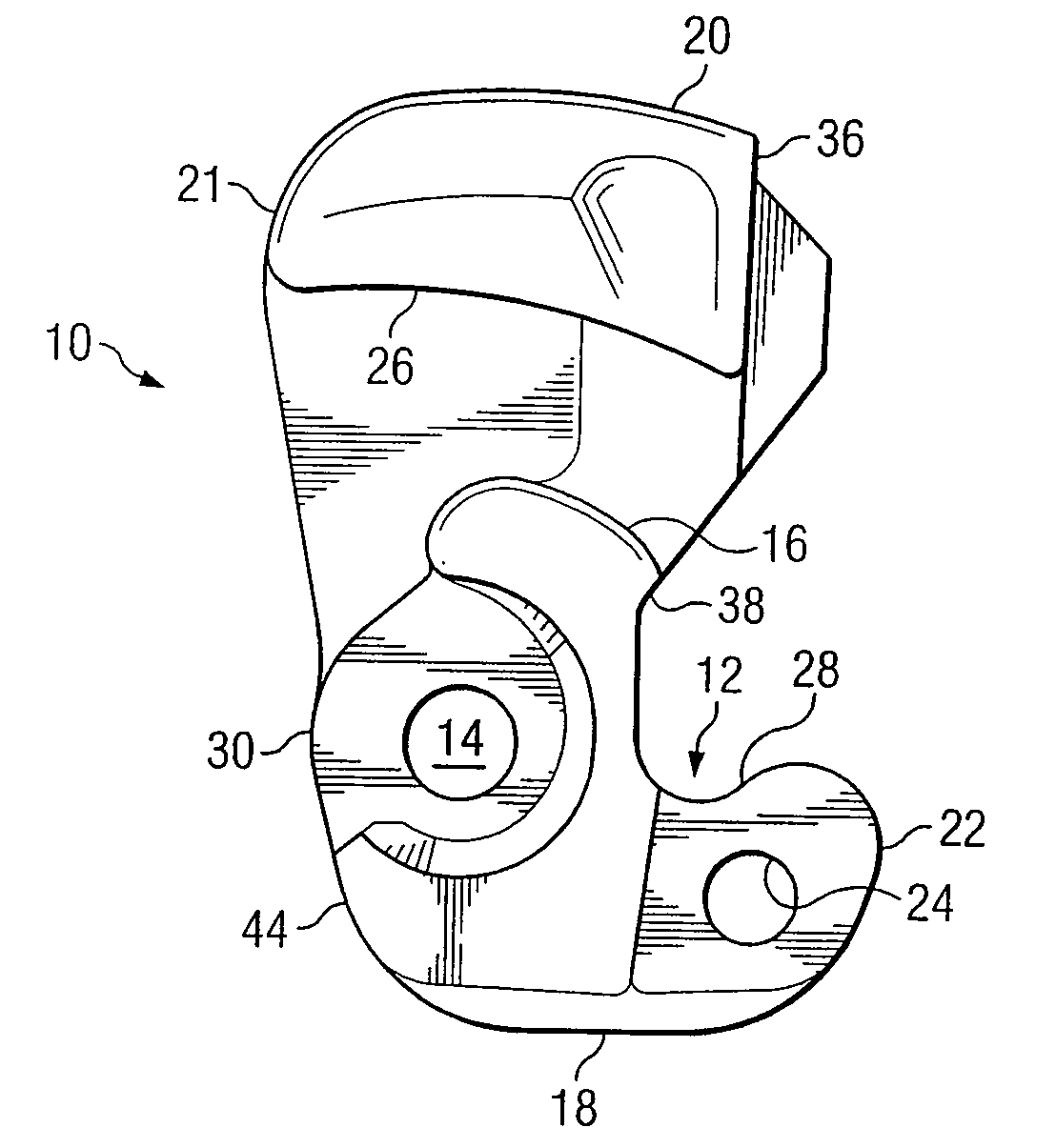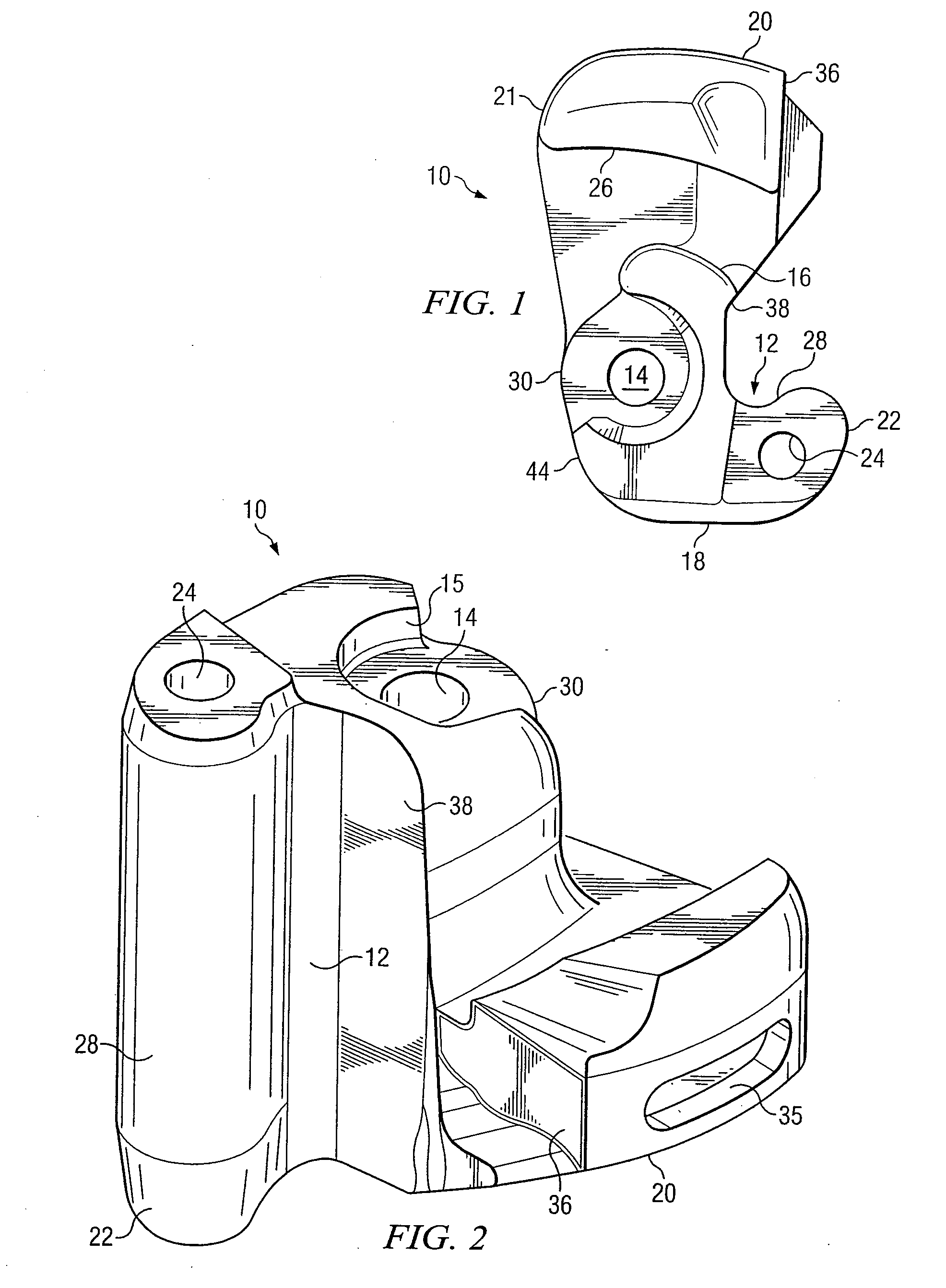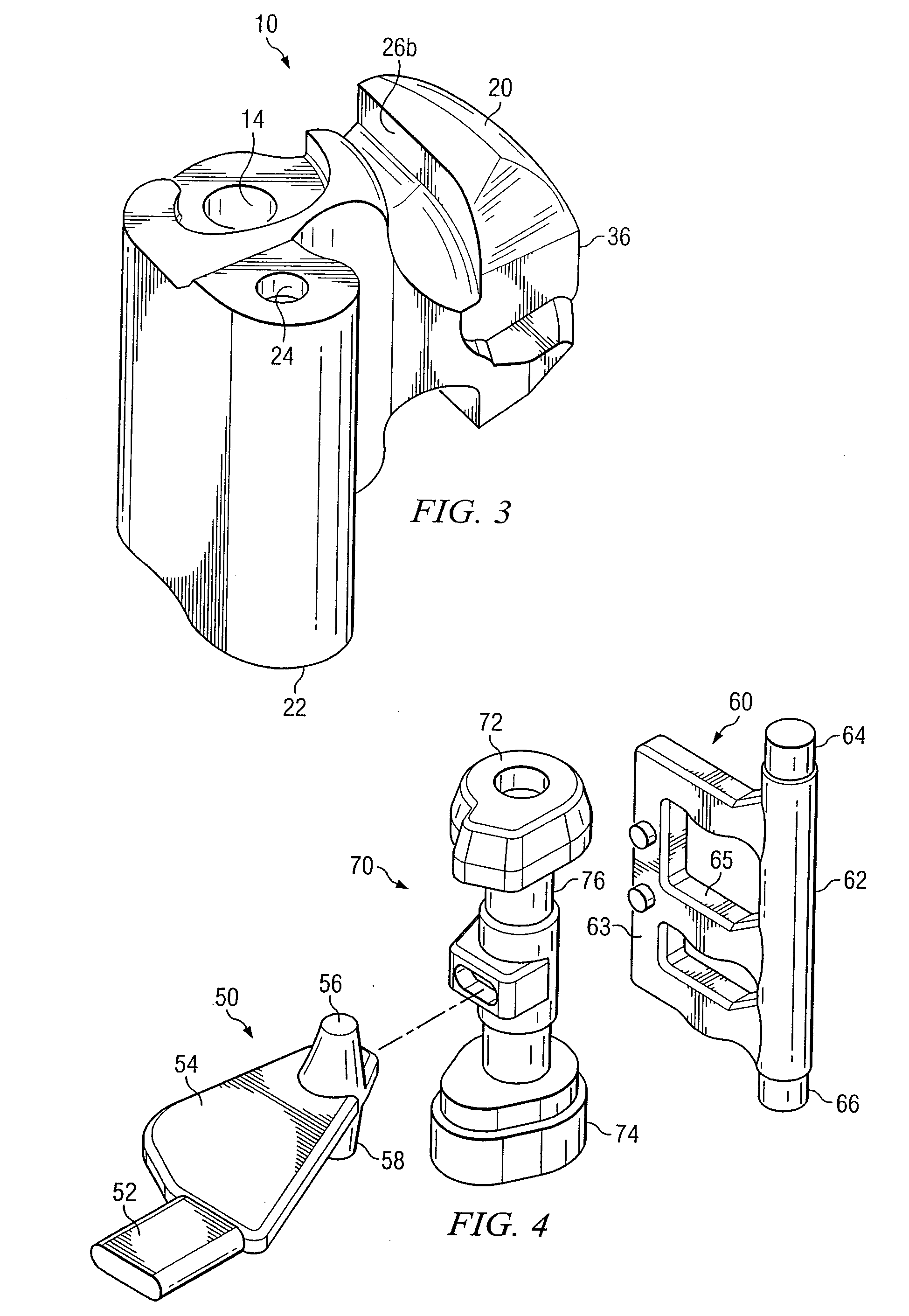Method and System for Manufacturing a Coupler Knuckle
a manufacturing method and coupler technology, applied in the field of coupler knuckle manufacturing methods and systems, can solve the problems of many knuckles failing from internal and/or external inconsistencies, labor-intensive coupler knuckle failures, and train delays, and achieve the effect of reducing or eliminating at least some of the disadvantages and problems
- Summary
- Abstract
- Description
- Claims
- Application Information
AI Technical Summary
Benefits of technology
Problems solved by technology
Method used
Image
Examples
Embodiment Construction
[0022]FIG. 1 is a top view of an example coupler knuckle 10 in accordance with a particular embodiment. Coupler knuckle 10 includes a tail section 20, a hub section 30 and a front face section 18. Hub section 30 includes a pivot pin hole 14 formed therein for receiving a pivot pin to pivotally couple the knuckle 10 to a coupler for coupling to a railcar. Pivot pin hole 14 may have generally cylindrical sidewalls and may have a middle region lacking sidewalls. Coupler knuckle 10 also includes a buffing shoulder 16, a tail stop 21, a pulling lug 26, a lock wall 36, a throat 38 and a heel 44.
[0023] Front face section 18 includes a nose section 22, which includes a generally cylindrical flag opening 24 formed in an end region of the nose section 22. A pulling face portion 28 is disposed inwardly from nose section 22. At least a portion of the pulling face portion 28 includes a bearing surface area 12 which bears against a similar surface of a coupler knuckle of an adjacent railcar to c...
PUM
 Login to View More
Login to View More Abstract
Description
Claims
Application Information
 Login to View More
Login to View More - R&D
- Intellectual Property
- Life Sciences
- Materials
- Tech Scout
- Unparalleled Data Quality
- Higher Quality Content
- 60% Fewer Hallucinations
Browse by: Latest US Patents, China's latest patents, Technical Efficacy Thesaurus, Application Domain, Technology Topic, Popular Technical Reports.
© 2025 PatSnap. All rights reserved.Legal|Privacy policy|Modern Slavery Act Transparency Statement|Sitemap|About US| Contact US: help@patsnap.com



